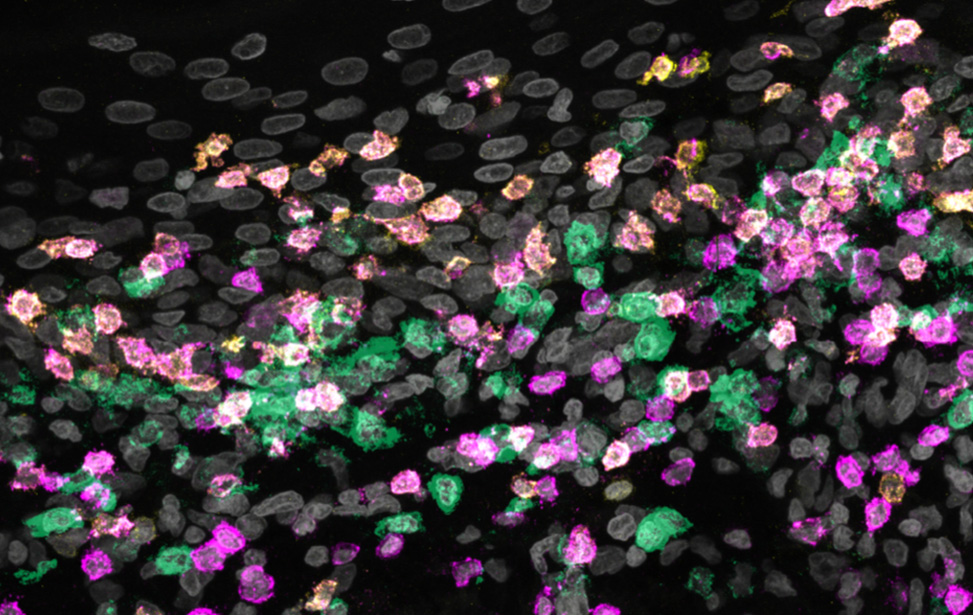Beatrice Zitti
Beatrice received her Master in Medical Biotechnology at Sapienza University in Rome in 2013. She performed her undergraduate research in the laboratory of Molecular Immunology and Immunopathology directed by Prof. Angela Santoni and under the supervision of Prof. Rossella Paolini.
Beatrice pursued her doctoral studies and obtained her PhD in Life Science in 2017 from Sapienza University. Her work investigated the modulation of innate cytotoxic lymphocyte (NK cells) functions during tumor immune surveillance. Particularly, the findings demonstrating that post-translational modifications impair NK cell-mediated tumor recognition and killing, contributed to our understanding of mechanisms employed by cancer cells to escape the immune system.
As part of her PhD training, Beatrice moved to Bethesda (USA) to conduct research at the National Institutes of Health (NIH) in the laboratory of Lymphocyte Cell Biology directed by Dr. John J. O’Shea. Under the supervision of Dr. Giuseppe Sciumè, she studied the role of STAT transcription factors in NK and innate lymphoid cell (ILC) differentiation, and how STAT4 and STAT5 contribute to epigenetic remodeling and function in inflammatory diseases.
In 2017, Beatrice joined Prof. Yenan Bryceson’s laboratory at the Karolinska Institute in Stockholm as a postdoctoral fellow. She unravelled the mechanisms responsible for the differentiation of cytotoxic tissue-resident memory (Trm) CD8+ T cells in the human skin. Her research showed that Trm cytotoxic functions are epigenetically poised and require the synergistic action of RUNX2 and RUNX3. She demonstrated that high expression of cytotoxic skin Trm signatures correlates with better prognosis in melanoma patients. Her work was supported by a Marie Skłodowska-Curie Actions (MSCA) Individual Fellowship, in collaboration with Prof. Liv Eidsmo, and a grant from the KI Research Foundation (2020–2021).
Beatrice’s research has advanced our understanding of how immune cells develop and function within tissues, and how these processes affect cancer recognition and clearance. In 2021, she joined Prof. Mikaël Pittet’s laboratory at the University of Geneva as a Research and Teaching Fellow to study immune regulation in tumors. Using mouse cancer models, in vivo imaging, and spatial analysis of human tumor microenvironments, she uncovered tolerance mechanisms that suppress dendritic cell function at tumor sites, limiting effective immune responses and contributing to poor immunotherapy outcomes.
In 2025, Beatrice joined IFOM to establish the Tumor Microenvironment and Immunotherapy laboratory. Her research focuses on dissecting immune cell interactions in the tumor microenvironment, identifying how to enhance immunotherapy responses, and uncovering the strategies tumors use to evade immune attack.
